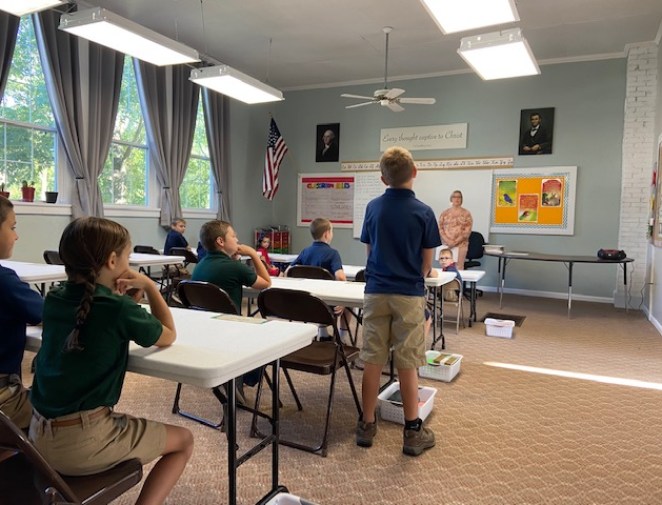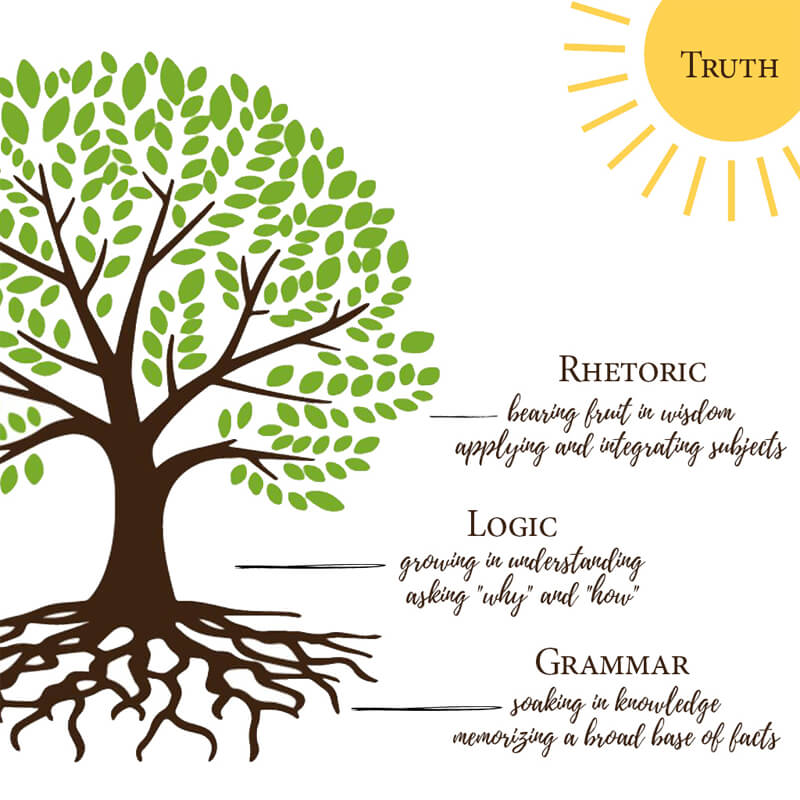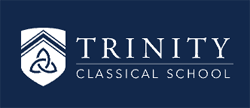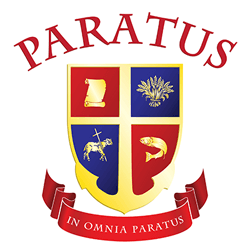Houston Classical Schools
Contents
Classical Christian Education (CCE) is an educational model that provides students in Houston with a unique combination of classical and Christian teachings. The approach is based on the belief that all knowledge comes from God and should be used to glorify Him. It emphasizes developing critical thinking skills, core knowledge, excellence in communication, and character formation through a communal learning experience.
Houston schools using CCE provide students with an education rooted in tradition and values while also preparing them for success in the 21st century. By teaching the great books of Western civilization, the classics of literature, philosophy, history, mathematics, and science — all within a biblical worldview — these schools strive to create well-rounded individuals equipped to make wise decisions in society. Students are encouraged to explore their faith as they develop intellects that can think deeply about complex moral issues.
Overview: Distinctives of Classical Christian Education
Classical Christian education emphasizes the importance of developing a solid foundation of knowledge in core disciplines such as language, history, math, and sciences through the traditional Trivium method. Traditionally, this education model has focused on teaching students to think critically while also allowing them to explore spiritual growth and faith development.
“Classical Christian Education provides timeless truths and enduring wisdom that prepare students to become thoughtful, informed citizens of the world.”
The Bible plays an integral role in Classical Christian Education. This style of education is based on the idea that the Bible should be a central component of any student’s learning experience. Through study, reflection, and discussion of biblical texts, students gain a greater understanding of their faith, develop critical thinking skills, and build personal relationships with God.

Classical Christian Education teaches students to seek out knowledge from various sources as they develop their unique beliefs and acquire wisdom from the Bible. Students learn how to apply biblical teachings to their daily lives through lectures from teachers and mentors who have expertise in classical Christian studies. Through this teaching method, students learn to think critically about scripture, appreciate its importance for spiritual growth, and become better equipped for academic success and life after school.
What is the Classical Christian Model of Education?
Classical Christian education is an educational philosophy based on the idea that knowledge should be acquired through studying traditional liberal arts. It is rooted in the classical tradition of the ancient Greeks and Romans, which subsequently significantly influenced Western culture. With its focus on the liberal arts, this education encourages students to think critically and pursue wisdom rather than memorize facts. Classical Christian education also emphasizes virtue and morality in all areas of learning.

What are the three parts of Classical education?
The classical approach uses the Trivium, a method of teaching and learning that has been used for centuries. It is based on three stages of understanding: grammar, logic, and rhetoric. This system was developed in ancient Greece and Rome to help students learn the skills they needed to become excellent communicators. By mastering each stage, students can increase their ability to think critically and make well-informed decisions.
“The trivium offers the wisdom of ages, empowering us to think critically and creatively.”
The Trivium
The Trivium method consists of three stages: Grammar, Logic, and Rhetoric. This approach fosters comprehension of each subject by exploring its grammar (facts), logic (relationships between points), and rhetoric (application). Additionally, Classical Christian Education emphasizes creating an environment that encourages students to ask questions as they seek truth in their learning process.
Grammar Stage
The first stage of the Trivium is grammar, which involves acquiring the knowledge necessary for clear communication, such as language rules and sentence structure. The second stage is logic which teaches how to use facts and evidence to form reasonable conclusions about ideas or topics being studied. Lastly, rhetoric helps individuals develop compelling arguments supporting their opinions or positions on any subject matter.
Rhetoric Stage
The Rhetoric Stage involves teaching students how to communicate their ideas through persuasive and eloquent speech effectively. Students learn to craft written documents like essays and articles and spoken languages such as speeches or presentations. They are taught methods of rhetoric such as argumentation, persuasion, and storytelling. Students also learn about Ethos, Pathos, and Logos – modes of appeal used to convince an audience – and literary devices such as irony or metaphor that can be used to make a point more effectively in communication.
Logic Stage
The Logic Stage is the third and final stage of the Trivium, an educational model developed by classical educators. This stage focuses on teaching children critical thinking skills, allowing them to understand more complex subjects. It is often referred to as the “higher order” thinking stage since it requires students to think much more profoundly than in previous steps.
Students are given tools and strategies for understanding abstract ideas and making reasoned arguments at this stage. They are taught how to analyze data and construct logical conclusions from it. Additionally, they learn to form counterarguments and consider different sides of an issue before deciding. Finally, they practice communication skills such as writing well-structured essays or giving presentations in front of an audience.
Benefits: Advantages of a Classical Education
A classical education offers students an opportunity to learn knowledge, skills, and values that have been passed down for generations. Students of a classical education will gain an intimate understanding of the classics, including literature, history, philosophy, and more. Studying these subjects through a classical lens provides students with invaluable insight into the past and how it applies in current times.
“A classical education allows us to gain a deeper understanding of the world and its history, equipping us with the knowledge to make informed decisions.”
The advantages of such an education include developing critical thinking skills to assess and analyze text, building communication skills by engaging in Socratic dialogue, and gaining an appreciation for timeless works of literature. Additionally, those who receive a classical education become well-versed in rhetoric, allowing them to engage in meaningful conversations with others, both orally and written.
Classical educators also focus on developing virtues within their students, such as courage, justice, and temperance, so they can apply these qualities when facing life’s challenges.
Houston Schools and Programs
At classical Christian Schools in Houston, students are exposed to the great works of literature and philosophy which have shaped Western civilization. At the same time, they learn how to think critically about themselves. This approach also teaches students how to apply their knowledge in real-world situations by developing problem-solving skills to help them become successful adults. Additionally, classical Christian education offers an academic environment where biblical principles are applied academically and personally as part of everyday life.
Trinity Classical School of Houston
7941 Katy Fwy #110, Houston, TX 77024; (281) 656-1880
 Trinity Classical School focuses on creating an environment of learning, growth, and creativity for all its students. Teachers at Trinity Classical School create a challenging yet supportive educational atmosphere that fosters intellectual curiosity and spiritual development.
Trinity Classical School focuses on creating an environment of learning, growth, and creativity for all its students. Teachers at Trinity Classical School create a challenging yet supportive educational atmosphere that fosters intellectual curiosity and spiritual development.
The mission of Trinity Classical School is to provide rigorous academic instruction in the traditional liberal arts tradition, as well as spiritual guidance rooted in a commitment to the Bible’s teachings. Students can develop their intelligence while growing spiritually through this unique combination of classic curriculum and Christian faith-based education. The program aims to prepare graduates for successful futures through acquiring knowledge, critical thinking skills, and practical experience gained inside and outside the classroom. – tcshouston.org
Providence Classical School
18100 Stuebner Airline Rd, Spring, TX 77379; (281) 320-0500
 Founded in 2008, Providence Classical School provides students with an exemplary education grounded in the classical tradition. The mission of Providence Classical School is to provide an excellent college preparatory education that equips students to live a life that is faithful to God and service to others.
Founded in 2008, Providence Classical School provides students with an exemplary education grounded in the classical tradition. The mission of Providence Classical School is to provide an excellent college preparatory education that equips students to live a life that is faithful to God and service to others.
The core curriculum at Providence Classical School consists of rigorous courses focusing on language arts, mathematics, science, history, and literature from both the ancient and modern periods. Students also benefit from weekly classes in Latin, Bible study, music, art, and physical education. More important than academics is their commitment to educating children through a biblical worldview that guides all aspects of their learning experience. This creates a learning environment where critical thinking skills are developed within a moral framework based on biblical truth and values. – pcsclassical.org
Paratus Classical Academy
8300 Katy Fwy, Houston, TX 77024; (281) 547-0060
 Paratus Classical Academy is a unique learning environment that allows students to engage in classical Christian education. The school, located in the heart of California, offers a classical curriculum combining rigorous academic instruction and spiritual growth. Students attend classes in small groups and are taught by experienced teachers who focus on developing the minds and hearts of each student.
Paratus Classical Academy is a unique learning environment that allows students to engage in classical Christian education. The school, located in the heart of California, offers a classical curriculum combining rigorous academic instruction and spiritual growth. Students attend classes in small groups and are taught by experienced teachers who focus on developing the minds and hearts of each student.
At Paratus Classical Academy, students learn to think critically and communicate effectively through traditional methods such as Socratic seminars and dialogue. The academy also emphasizes moral training and development through Scripture-based lessons. In addition, Paratus Classical Academy encourages leadership development among its students through extracurricular activities such as debate teams and public speaking opportunities. – sbsum.org
The Saint Constantine School
7177 Regency Square Blvd, Houston, TX 77036; (832)975-7075
 The Saint Constantine School offers an academically rigorous education focusing on forming well-rounded young people. The school strongly emphasizes classical literature and the importance of moral values, stressing the development of ethical principles in students.
The Saint Constantine School offers an academically rigorous education focusing on forming well-rounded young people. The school strongly emphasizes classical literature and the importance of moral values, stressing the development of ethical principles in students.
At Saint Constantine, students learn to think critically but also gain mastery over typical core subjects such as science and mathematics. In addition, students receive instruction in Latin and Greek language courses, providing them with unique opportunities for growth inside and outside the classroom. Character formation is deeply ingrained into all aspects of learning at this institution; teachers strive to foster self-discipline and respect in their curriculum. – saintconstantine.org
Challenges: Obstacles to Classically Educating Kids
Classical Christian education offers a unique approach to educating children, but some inherent obstacles can make the process more challenging. The classical method involves teaching students at their own pace and allowing them to think critically about the material presented. This requires dedicated teachers who can provide a range of activities for students of all ages and abilities. Additionally, because this type of education is often expensive and difficult to access, many families find it challenging to take advantage of this opportunity.
Differences: Classical Education Schools vs. Other Private Schools
Unlike many other forms of private school education, Classical Christian Education focuses on the Trivium method, which includes grammar, logic, and rhetoric to develop critical thinking skills and a firm understanding of language. This unique approach focuses heavily on memorization techniques and teaching students to think critically about what they have learned.
At Classical Christian Schools, teachers strive to create an atmosphere where student learning can be enriched by Scripture and Biblical principles. In this environment, teachers can help their students explore new ideas while fostering a love for learning.
Conclusion: Achieving Quality in the Home
Classical Christian education has long been regarded as one of the best ways to cultivate a child’s intellectual, spiritual, and moral growth. This learning style focuses on equipping students with an understanding of timeless truths from the Scriptures, history, and literature – all within the context of family life. Through rigorous instruction coupled with discussion-based learning tools such as debates, role-playing activities, and book clubs, teachers and parents can further foster their child’s academic excellence.







